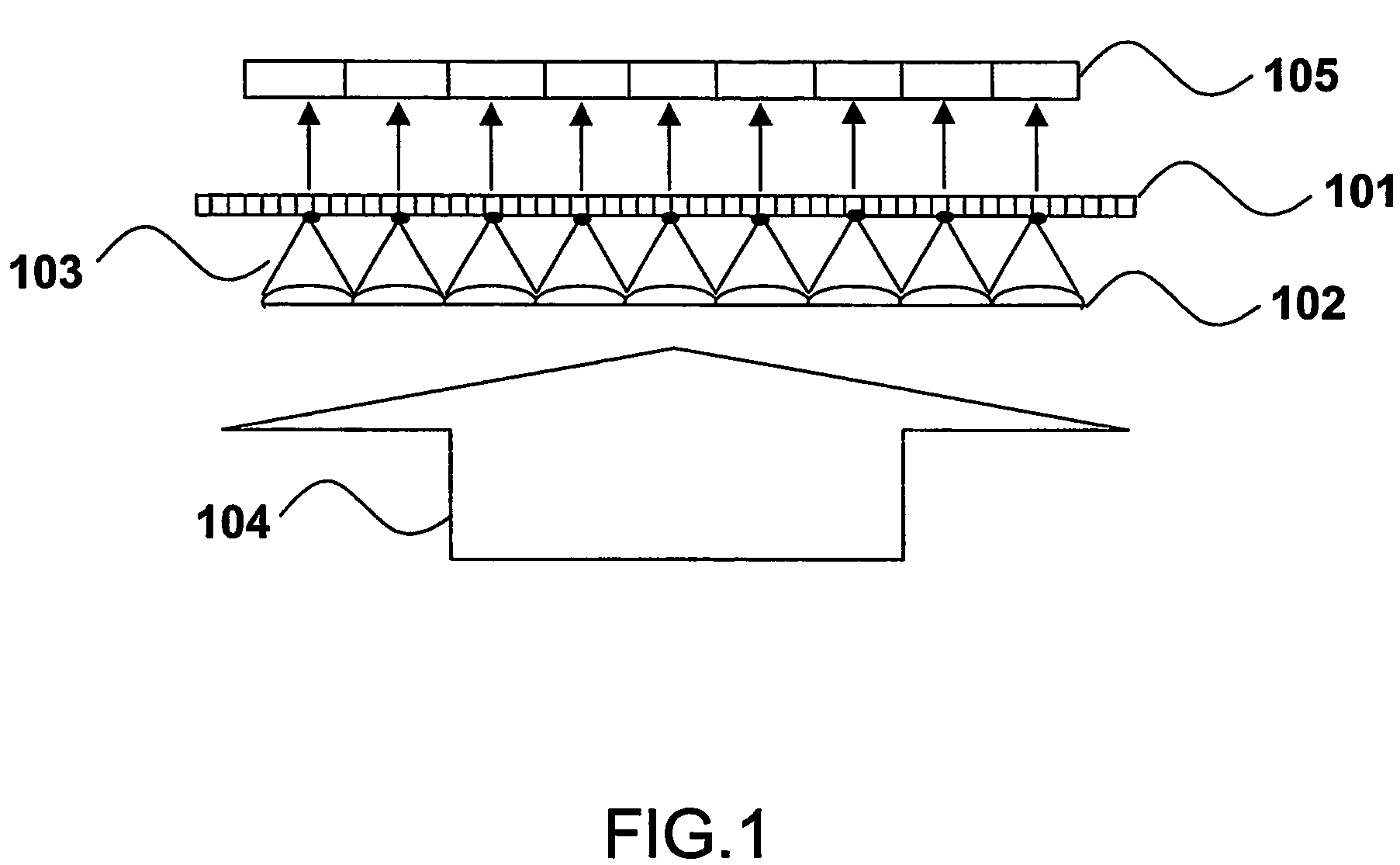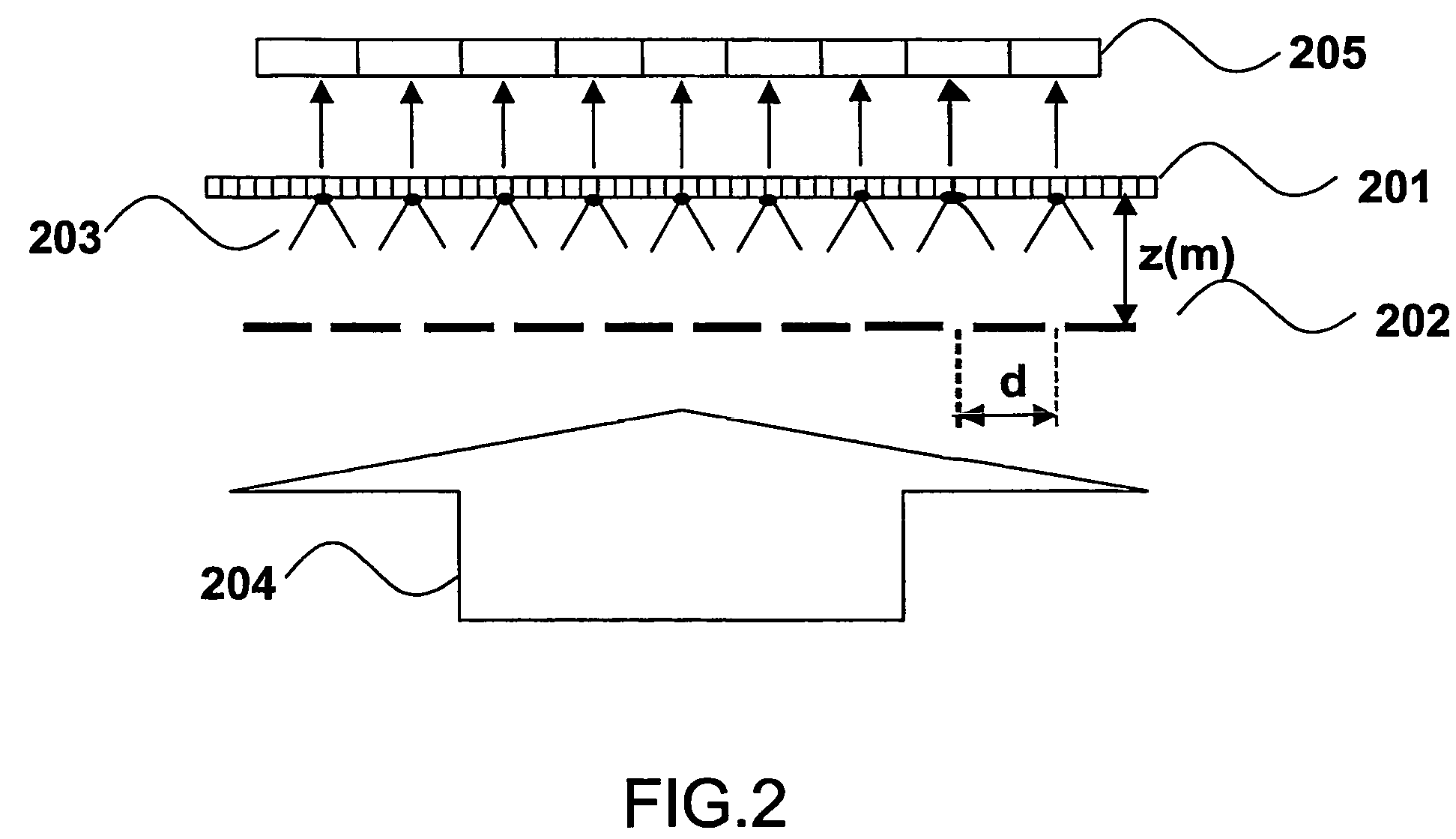System for reading data stored on an information carrier
a technology for information carriers and information carriers, applied in the field of information carrier reading systems, can solve the problems of inability to easily use optical storage in applications, known applications using this type of storage are not robust to shock, etc., and achieve the effect of reducing building height and facilitating implementation
- Summary
- Abstract
- Description
- Claims
- Application Information
AI Technical Summary
Benefits of technology
Problems solved by technology
Method used
Image
Examples
first embodiment
[0047]In a first embodiment depicted in FIG. 1, the system according to the invention for reading data stored on an information carrier 101 comprises an optical element 102 for generating an array of light spots 103 from an input light beam 104, said array of light spots 103 being intended to scan the information carrier 101.
[0048]The optical element 102 corresponds to a two-dimensional array of micro-lenses to the input of which the coherent input light beam 104 is applied. The array of micro-lenses 102 is placed parallel and distant from the information carrier 101 so that light spots are focussed on the information carrier. The numerical aperture and quality of the micro-lenses determines the size of the light spots. For example, a two-dimensional array of micro-lenses 102 having a numerical aperture which equals 0.3 can be used. The input light beam 104 can be realized by a waveguide (not represented) for expanding an input laser beam, or by a two-dimensional array of coupled mi...
second embodiment
[0052]In a second embodiment depicted in FIG. 2, the system according to the invention for reading data stored on an information carrier 201 comprises an optical element 202 for generating an array of light spots 203 from an input light beam 204, said array of light spots 203 being intended to scan the information carrier 201.
[0053]The optical element 202 corresponds to a two-dimensional array of apertures to the input of which the coherent input light beam 204 is applied. The apertures correspond for example to circular holes having a diameter of 1 μm or much smaller. The input light beam 204 can be realized by a waveguide (not represented) for expanding an input laser beam, or by a two-dimensional array of coupled micro lasers.
[0054]The light spots are applied to transparent or non-transparent areas of the information carrier 201. If a light spot is applied to a non-transparent area, no output light beam is generated in response by the information carrier. If a light spot is appli...
PUM
| Property | Measurement | Unit |
|---|---|---|
| diameter | aaaaa | aaaaa |
| distance | aaaaa | aaaaa |
| stability | aaaaa | aaaaa |
Abstract
Description
Claims
Application Information
 Login to View More
Login to View More - R&D
- Intellectual Property
- Life Sciences
- Materials
- Tech Scout
- Unparalleled Data Quality
- Higher Quality Content
- 60% Fewer Hallucinations
Browse by: Latest US Patents, China's latest patents, Technical Efficacy Thesaurus, Application Domain, Technology Topic, Popular Technical Reports.
© 2025 PatSnap. All rights reserved.Legal|Privacy policy|Modern Slavery Act Transparency Statement|Sitemap|About US| Contact US: help@patsnap.com



